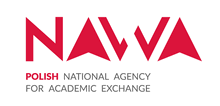Temperature dependent viscosity of liquid lead as important flow parameter studied for DFR mini-demonstrator
2021.06.10 12:51 - Katarzyna KuźniarThe construction of a mini-demonstrator is one of the main and early stages on the way towards the future realization of the Dual Fluid Reactor (DFR) concept. The mini-demonstrator is a small version of the DFR itself, where the heat transfer and flow distribution have to be tested and compared with corresponding simulation calculations. Therefore, the application of the CFD codes is necessary in order to determine the temperature and velocity profiles of the flow in different parts of the high-temperature fuel and coolant loops as precisely as possible. They will be very useful for the planned experiments ranging between the study of the start-stop procedures, vibration effects and natural convection.
The main component of the mini-demonstrator will be a model of the reactor core consisting of seven fuel ceramic pipes surrounded by the coolant. Additionally, an inlet and outlet core regions built of 12 pipes are designed in tune with the actual reactor. For the purpose of a preliminary study, the fuel and coolant both are pure molten lead, each at a different temperature. The heat transfer and flow characteristics within the core have been analyzed using the computer code Ansys Fluent. The flow velocity and temperature profiles have been calculated for different pumping velocities and temperature gradients between the coolant and fuel. The main objective of the study is to demonstrate the influence of the temperature-dependent viscosity of the investigated fluid on the evaluated profiles. The analysis will help the DFR team to improve the design of the mini-demonstrator and optimize future experiments.
| Załącznik | Wielkość |
|---|---|
| 488.51 KB | |
| 441.01 KB |











